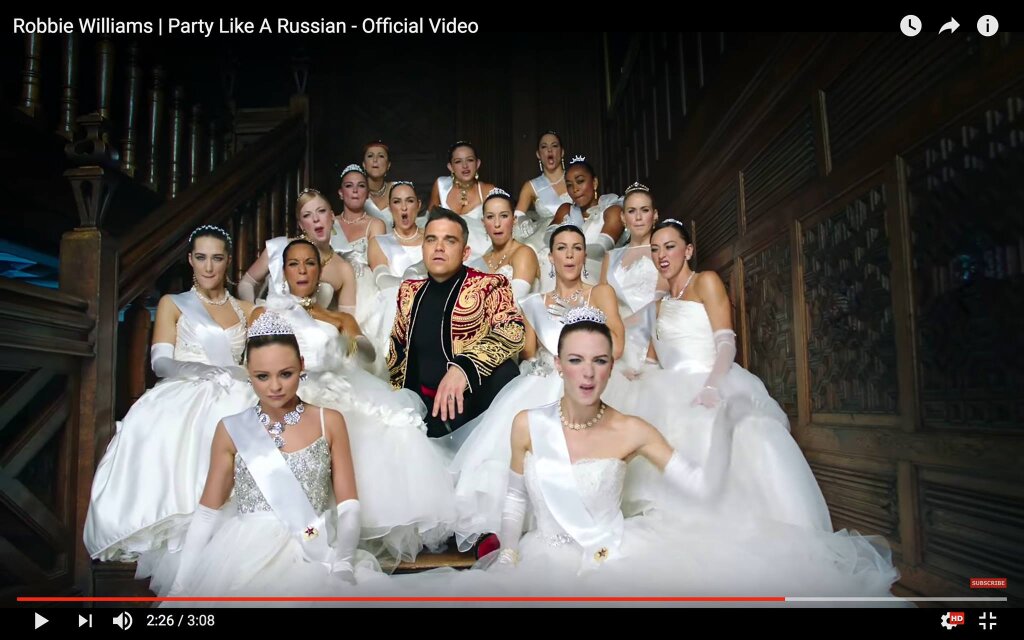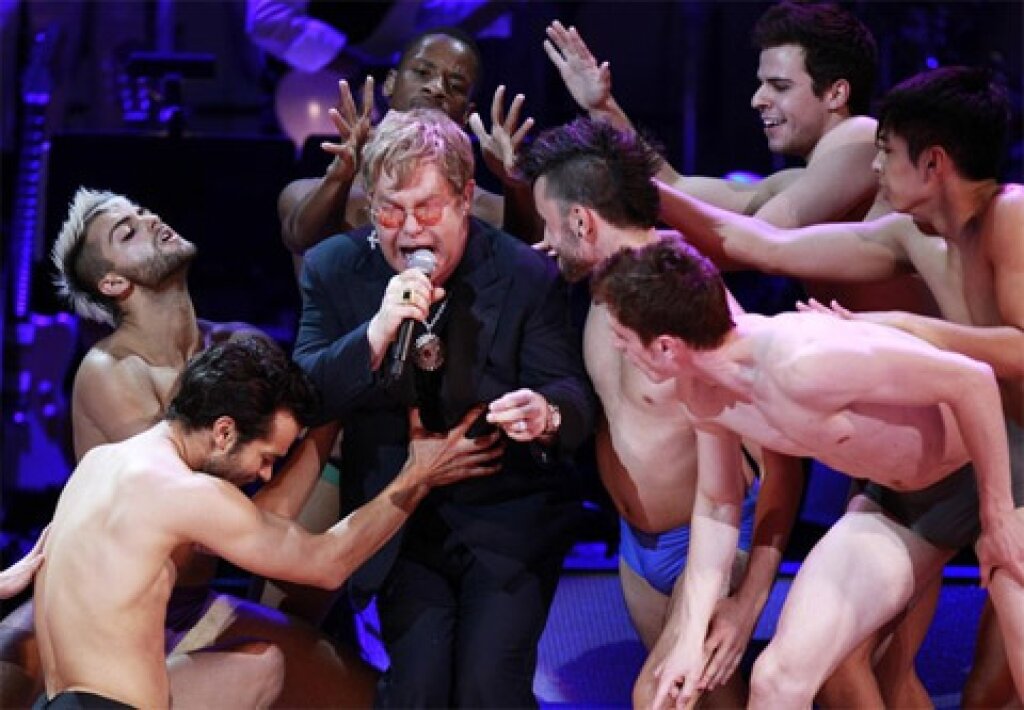We at the Jordan Center stand with all the people of Ukraine, Russia, and the rest of the world who oppose the Russian invasion of Ukraine. See our statement here.
Iveta Ķešāne is an Assistant Professor at the Latvian Academy of Culture.
I recently attended a workshop where each participant presented their observations about the state of national identity in the Baltic States. One of my arguments in the workshop was that emotions of (national) pride and shame are relational facets of national identity, and that in the post-Soviet space this emotional dynamic has been affected by Western expertise. Diplomats and others introduced neoliberal reforms and ideas to the Latvian "transformation elite," a term I use to denote the Latvian political leadership that guided and governed the country's post-Soviet transformation.
Relationships between the transformation elite and Western experts in post-Soviet Latvia established a specific discursive logic in the arena of national pride. Specifically, I noted that only after Latvia was recognized by the West could the ruling elite and the people feel proud of it. After my presentation, I was asked to expand on the idea that national pride relates to neoliberal transformations. I explained that by the end of the 1990s, the Latvian transformation elite, as well as the Latvian diaspora abroad, had been socialized into neoliberal ways of thinking through travel and contacts with Western diplomats, experts from international organizations, and representatives of the European Economic Community (later European Union). Among diplomats and experts of the time, neoliberal thought was considered development gospel. To think otherwise was shameful; to disagree meant signaling that the Latvian ruling elite did not want to cooperate with the west or switch from a Soviet to a Western mode of thought. To assimilate to Western norms, to be "like" the West meant to neoliberalize. In this way, neoliberalization became one mechanism for achieving national pride.
These relational and emotional dynamics within post-Soviet transformations, I argue, fit well with the idea of a “civilizing process,” articulated by the German-Jewish sociologist Norbert Elias nearly a century ago. For Norbert Elias, a “civilizing process” entails the historical homogenization of rules of conduct, rules historically shaped by powerful Western elites. Over time, these rules would dominate the globe, and, as they developed, came to include a specific socio-emotional dynamic. This domineering standard entailed a certain “threshold of shame” and, as such, implicitly worked as a moral instrument, since to deviate from the accepted standard constituted "bad" behavior. Elias contended that non-Western elites felt the anxiety of not "looking good" in the eyes of the more developed and powerful West, and were therefore eager to comply with the behavioral standard.
In my 2021 article, “Neoliberalization and Politics of Shaming: Ruling Elites’ Response to Protests by Schoolteachers and Farmers in Post-Soviet Latvia (1994–2000),” I suggested that, if Norbert Elias is right, neoliberalization could be seen as one such “civilizing process.” The secondary literature offers ample support for the idea that, during the post-Soviet period, Westerners helped socialize the Latvian ruling elite into a neoliberal behavioral standard. In my own research, I observe that the Latvian ruling elite used shaming in public rhetoric to discipline people according to neoliberal ideals. Borrowing from historian Bonnie Morris I call this phenomenon a “politics of shaming.”
My article follows the two largest protests of the 1990s, which were staged by school teachers and farmers. I was especially interested in finding out how the ruling elite responded to the protests, which were generally directed at neoliberal reformers. The schoolteachers’ protests took place in the autumns of 1994, 1996, and 1999, while the farmers’ protests occurred during the spring and autumn of 1997, in the spring of 1999, and in the summer of 2000. The schoolteachers protested against deteriorating working conditions and low wages; farmers were concerned about agricultural policy and issues like protecting the domestic market, state subsidies, and taxation. Neoliberal economic policies, which significantly reduced state protections for agriculture and subjected it to global competition, put Latvian farmers in a difficult situation.
The ruling elite tended to disregard the protesters’ demands, dismissing them as unreasonable. Instead of showing empathy with schoolteachers and farmers due to their impoverished condition, the ruling elite used the tactic of shaming and pitted various groups against one another to possibly tame further protests. Consistently with the neoliberal ideas of individual responsibility and marketization, the protesters were advised to find individual solutions to their problems and work hard rather than expecting any care to come from the state.
The protesters' opponents also presented them as ignorant of the broader development issues at stake. For example, in his December 1994 response to protesters, Valdis Birkavs, head of the leading political party Latvijas Ceļš, labelled them “little men” incapable of understanding the overall socioeconomic and political situation and thus threatening “to destroy the whole structure of the national budget.” This lack of knowledge was said not only to jeopardize Latvia’s national development, but also threaten its belonging to the West.
During the farmers’ strike in 1999, Minister of Finance Ivars Godmanis explicitly stated that the needy ministries, including the Ministry of Agriculture, would not receive the funds the protesters demanded to avoid violating the austerity measures imposed by Western donors. This individualizing and essentializing rhetoric was supplemented by pitting various groups against one another. For example, an announcement by the Cabinet of Ministers published in response to teachers' protests in November 1994 in the daily newspaper Diena [The Day], pitted groups like pensioners, doctors, and the needy against one another. The announcement shamed schoolteachers by stating that their demands could only be met at the expense of these other groups. Political leaders used a similar discursive strategy in response to farmers’ protests, which they framed as destructive to national development and endangering the well-being of other groups.
I argue that such shaming by the ruling elite is evidence of neoliberalization as a broader “civilizing process.” To gain Western recognition, the Latvian ruling elite felt compelled to resist any actions that would deviate from the adoption of Western-approved neoliberal ideas and policy norms. Perceiving teachers and farmers’ protests as a threat to the process of assimilation to the Western political economic order, the elites sought to quell them through shaming rhetoric.
Yet this shaming, I believe, also alienated people from the state and divided societal groups from one another. Divisive language and individualizing rhetoric taught people not to seek solidarity with one another, but instead to look for individual solutions to collective problems. Accordingly, shaming acted as a discursive instrument to silence democratic voices in the post-Soviet space. The politics of shaming, which cast protesters as somehow impaired in terms of their expectations toward the state and national development, enfeebled people’s initiative to stand up for themselves in Latvia and socialized them to see protesting as morally wrong.
Shaming was also likely injurious to people’s personal self-confidence, a quality that, according to sociologist Jack Barbalet, is important for one’s “willingness to act” — in particular, to seek a democratic dialogue with the state. Despite the notion that people in a now-democratic Latvia should be active participants in the fashioning of the state and their own well-being along with it, when they expressed their will through protest and strike, the ruling elite routinely shamed them. Although I studied the Latvian case, if neoliberalism is a “civilizing process” that imposes uniform norms and standards across the world, it is entirely possible that similar episodes of shaming took place elsewhere.
To return now to the workshop I mentioned at the beginning of this post: one participant, a professor in religion and cultural history from a neighboring Baltic country, eagerly shared an example from academia that fit well with the idea of a “civilizing process” enacted through shaming. Although she herself had books and articles published by the recognized Western university presses and peer-reviewed articles in acclaimed international journals, she said she and other Baltic colleagues now felt anxious that monographs and articles published in their native languages and journals no longer "counted." Only those research results recognized by Western publishers and internationally known peer-review journals were deemed "worthwhile." Those academics who write for national outlets may begin to feel inferior and even ashamed in relation to those who are oriented towards international publishers. This workshop participant's example demonstrates again how post-Soviet transformation more broadly followed the logic of what Norbert Elias called a “civilizing process.”
As I was writing this post, Vladimir Putin’s invasion of Ukraine began. As the mother of two toddlers, I felt great anxiety and simultaneous empathy and sadness for the desperation many Ukrainians and their families had to face. I was angry at Putin for his devastating ambition. Yet Norbert Elias’s argument made me see in Vladimir Putin a frantic will to stop the “civilizing process” the Western institutions and governments were encouraging in Ukraine, to limit the space this process invaded, and instead maintain the space run by Putin's own standards, no matter what it takes. It is as though Putin resists accepting the logic of a “civilizing process” (the logic we in the West call "rational," as opposed to all the irrationality Putin has unleashed), and the shaming which underlies it, instead replacing these emotions with deep anger and a desire for revenge.
Although Russia has not escaped capitalistic development, just as it has not escaped a post-Soviet neoliberalization that subordinated many of its institutions to a kind of Western standard, Putin continues to resist the Western "civilizing process" through the domain of power and its most brutal mechanism—war.


